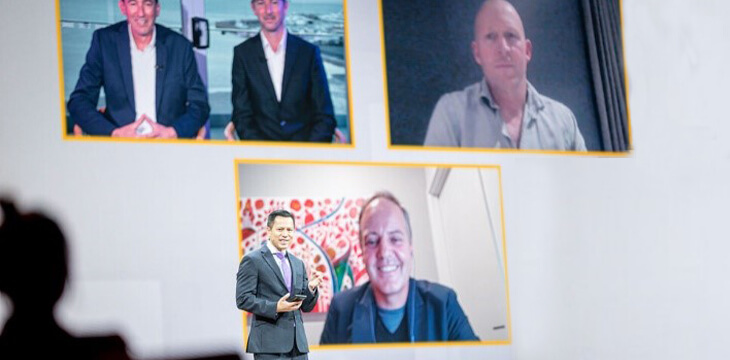|
Getting your Trinity Audio player ready...
|
Bitcoin is eco-friendly if utilized correctly as in the BSV blockchain.
At the CoinGeek Zurich conference, the topic of Bitcoin and sustainability was introduced in a group presentation with specific examples.
Moderated by Bitcoin Association’s Founding President Jimmy Nguyen, four panelists were invited to put their heads together about Bitcoin, natural resources and positive environmental effects of the BSV blockchain.
To introduce the presenters:
- Paul Chiari, Founder of WeatherSV and MetaStreme
- Daniel Keane, Co-Founder and Managing Director of Predict Ecology
- Nick Seymour, Founder and CEO of Farmo Group Pty Ltd.
- Brett Anquetil, CTO of Smart Systems
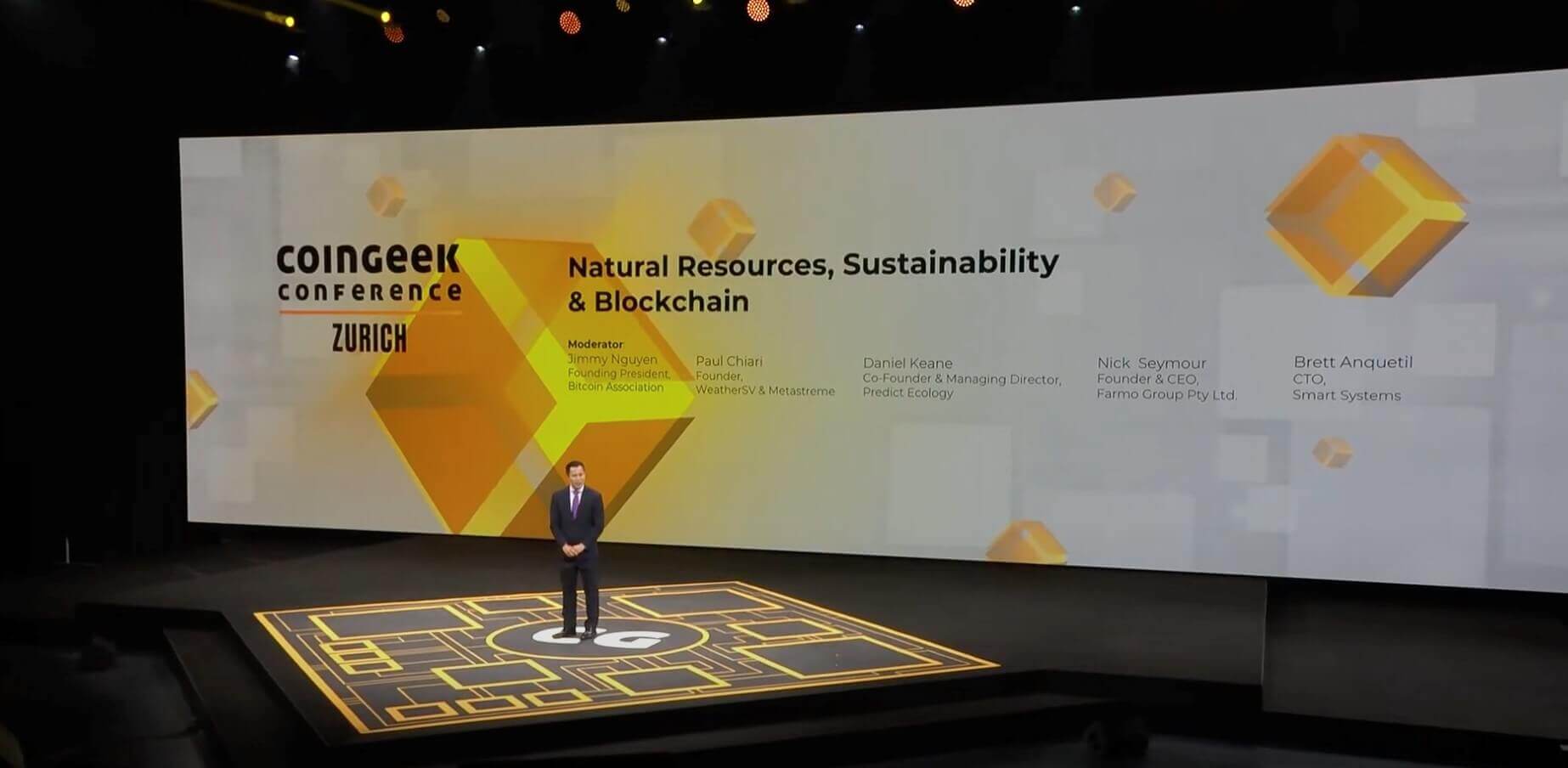
“Mining and energy consumption: a lot of people think that it is inefficient to have Bitcoin mining. You heard why BSV is the green Bitcoin and can change that perception for the better,” Nguyen said in his introduction.
Chiari started his part of the group presentation with an explanation on WeatherSV, a BSV blockchain powered application for aggregating weather data from known sources and recording it for good on the blockchain. According to Chiari, the next phase for WeatherSV is to allow private weather stations and users to generate an income for uploading weather data onto the BSV blockchain.
Concerning the wallet MetaStreme, Chiari pointed out that it was necessary to build this wallet infrastructure for the ultra-high transactional throughput that weather data lets occur on the BSV blockchain. Even though still in beta, MetaStreme is set to handle infinite scaling.
“Sustainability for me is doing more with less,” Chiari said and he is confident that the BSV blockchain is able to lessen the waste of natural resources that happen right now due to infrastructural and market inefficiencies.
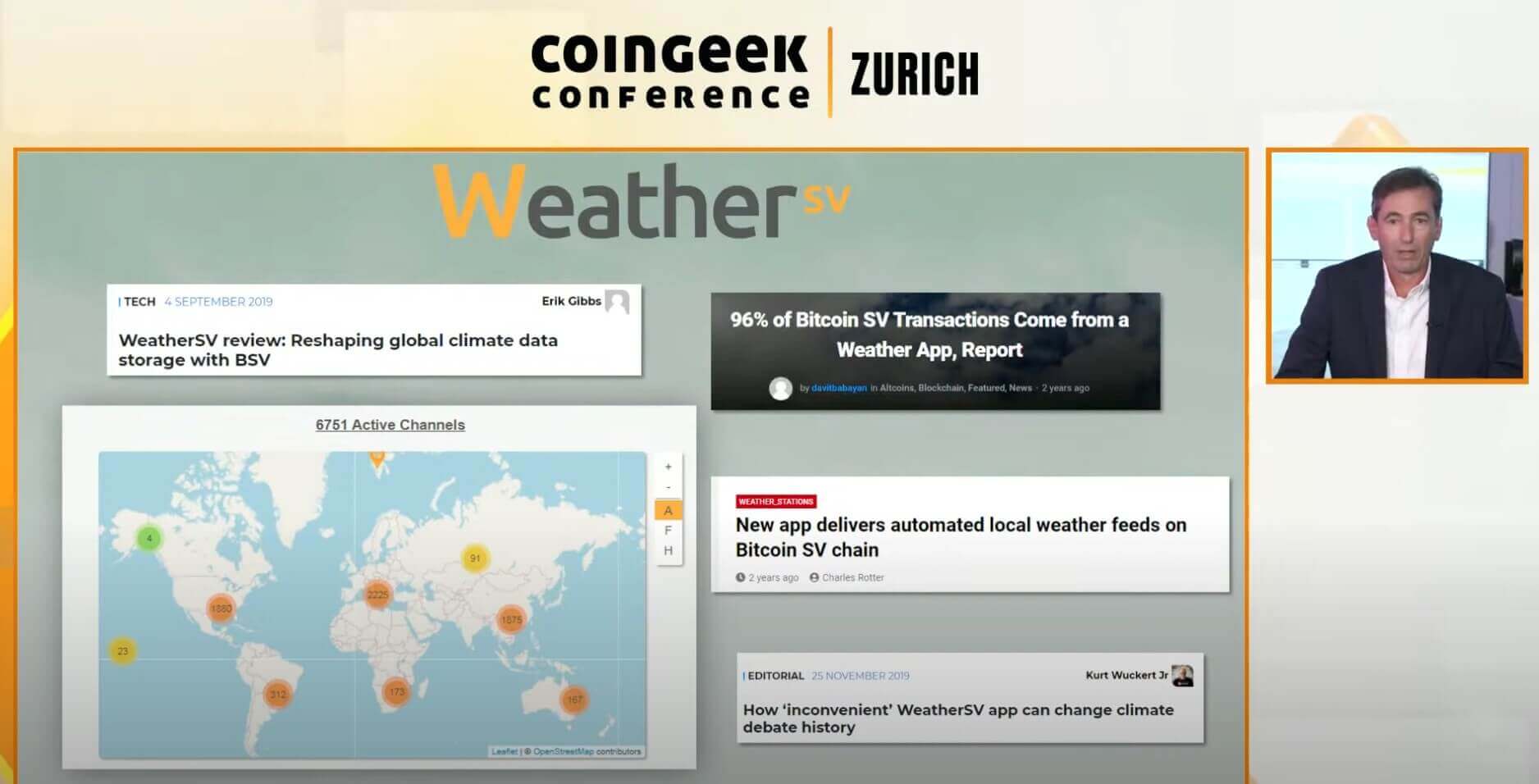
“I like to think of sustainability as an interaction between a human and a natural system that does not damage the value of nature,” Keane said.
To actually make a change concerning sustainability and saving of natural resources, Keane emphasizes that it all starts with digitally recording the complexity of natural systems.
Right now, Predict Ecology is developing blockchain GIS tools for biodiversity that allow users to upload GPS data concerning plant species and more.
According to Keane, the BSV blockchain is way more sustainable than the BTC system when taking the CO2 burden per transaction into consideration.
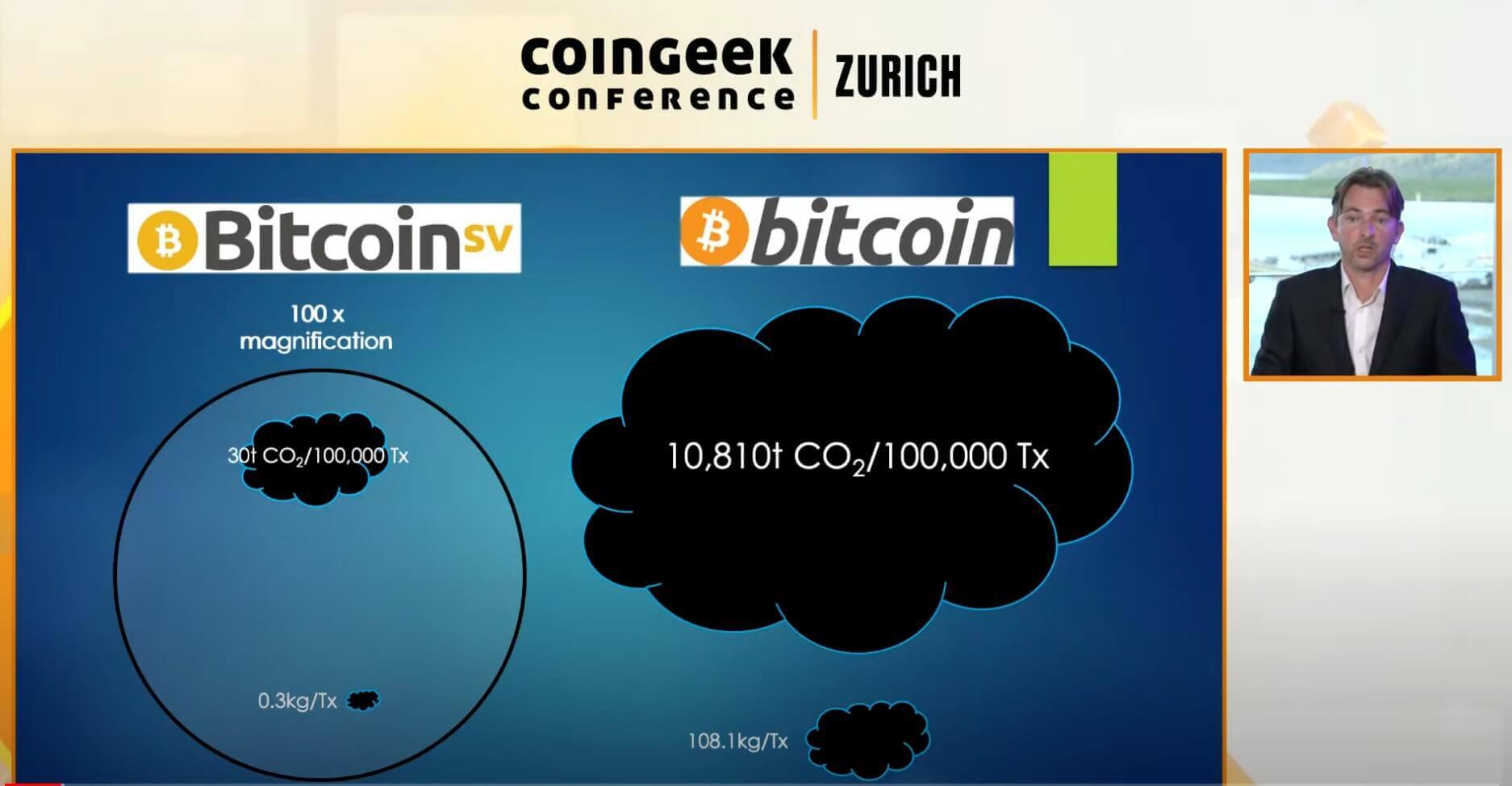
Interestingly, Chiari too pointed out the fact that the BSV blockchain is the most efficient blockchain technology from an environmental and carbon perspective by hinting at the website Coin Carbon Cap.
The website Coin Carbon Cap compares different digital assets concerning their carbon emission effects.
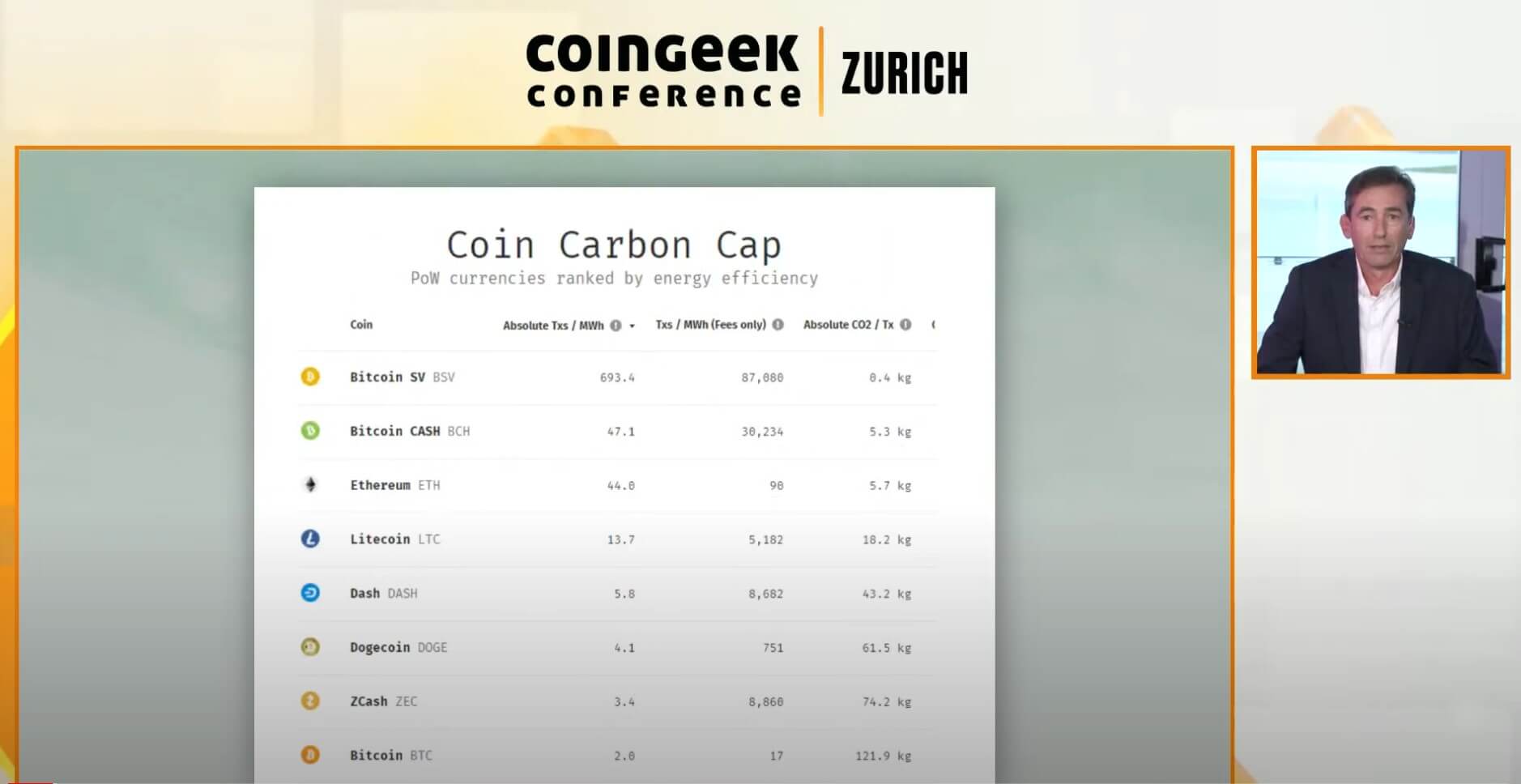
Seymour explained the idea of Farmo: solving farm problems using Internet of Things (IoT).
Since one of the problems of farming is water, Seymour presented one of his products called Water Rat, a device that digitally informs farmers of water levels in different use cases such as in troughs.
“A farm is only as valuable as the amount of water that it can receive,” Seymour said, elaborating on his other devices he is already using on farms to gather rainfall data.
While being busy with all of his projects, Seymour was introduced to the concept of blockchain and immediately saw the opportunity that lies in putting all of the gathered data onto a distributed public ledger.
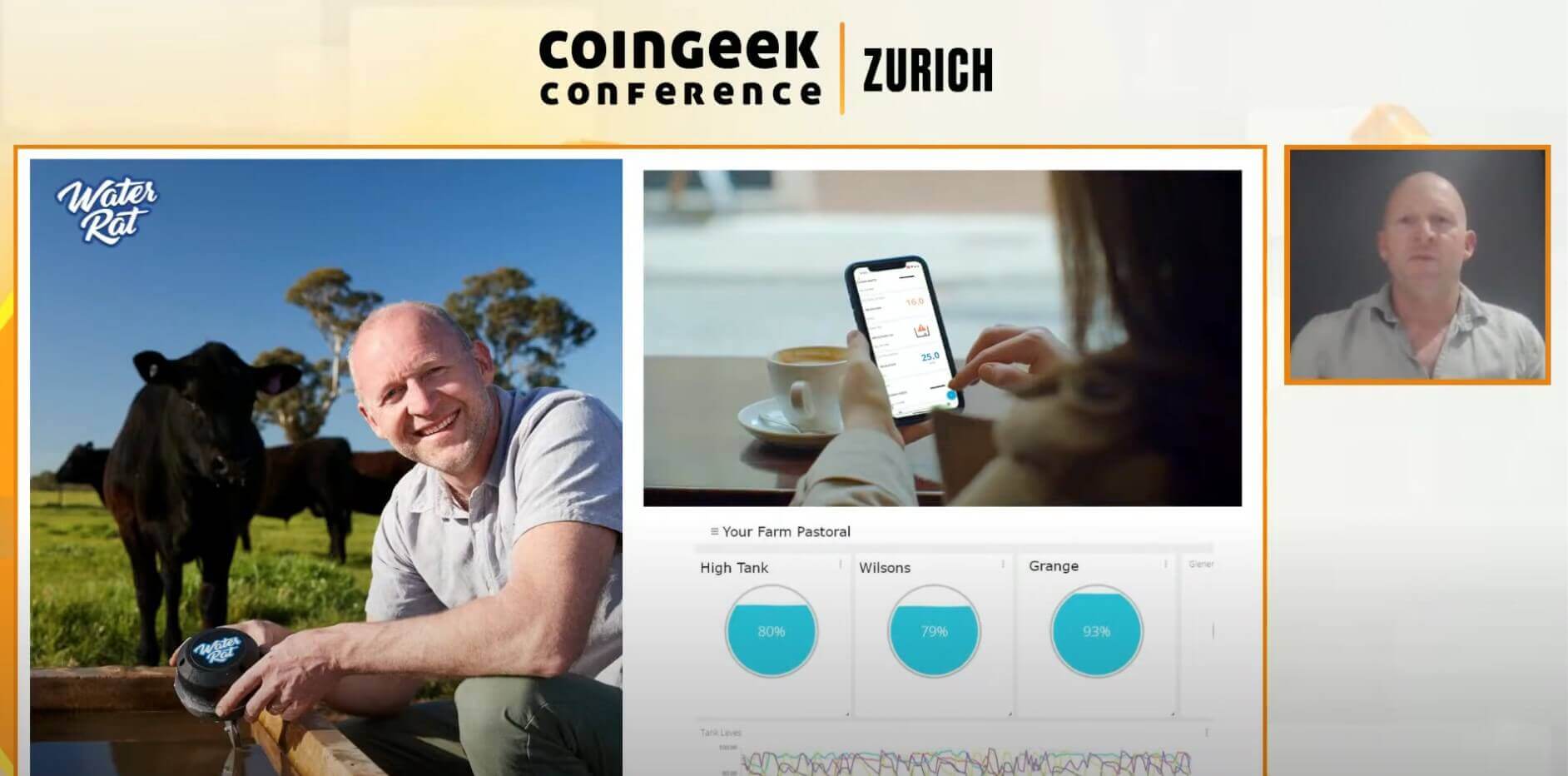
Concerning food traceability, Seymour hinted at the opportunity for brands to increase trust with customers by letting them see the sources of food products on the blockchain.
Anquetil started off his presentation with shocking statistics: “780 million people around the world do not have access to clean water today. If you think that is bad, 829,000 people die each year as a result of unsafe drinking water and sanitation.”
Anquetil went on to explain that the United Nations has made clean water access one of its sustainable development goals, and that women and children bear most of the burden travelling to get clean drinking water.
Water Source and Smart Systems, the two projects Anquetil is working on the most, have developed an innovative water treatment unit—to be controlled and monitored remotely using IoT.
As of right now, Water Source and Smart Systems are looking for ways to operate on a blockchain for all of their data. Anquetil said he is already working with BSV blockchain powered MetaStreme.
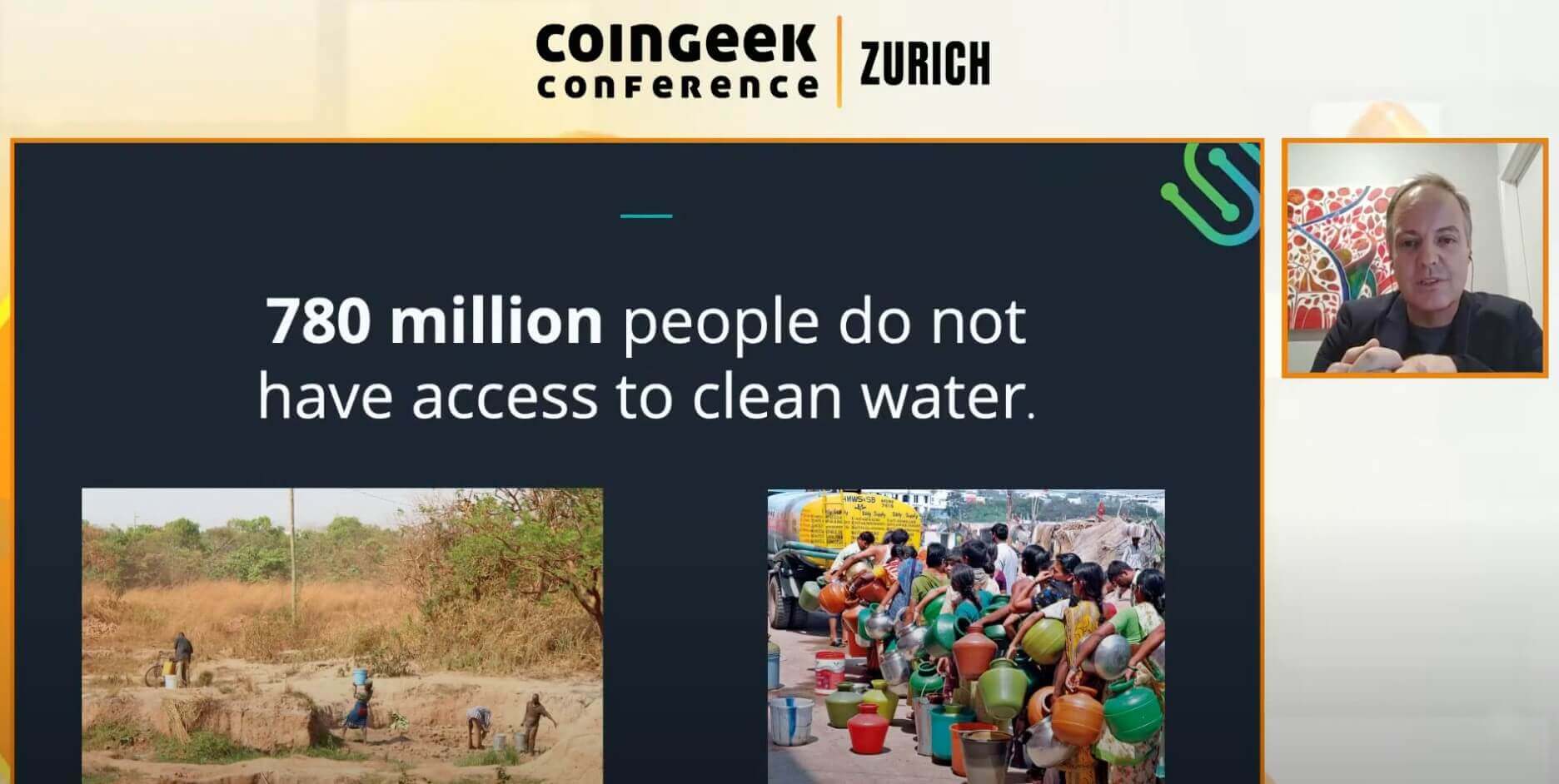
As shown by the panelists, sustainability and related topics are a very wide field, yet the BSV blockchain manages to provide infrastructural data capacities to serve all the needs.
There literally is not one use case in digital terms that BSV cannot help with greatly.
The group presentation made it clear that climate change, sustainability and saving natural resources can be dealt with efficiently via the BSV blockchain.

 02-18-2026
02-18-2026 
